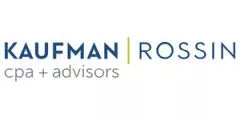- within Accounting and Audit, Privacy, Government and Public Sector topic(s)
- with Finance and Tax Executives
- with readers working within the Accounting & Consultancy, Banking & Credit and Transport industries
QSBS offers powerful incentives amid complex requirements
Qualified Small Business Stock (QSBS) is a powerful but complex tax incentive that can offer significant benefits to small business investors. While it presents attractive tax-saving opportunities, QSBS also comes with stringent requirements and potential risks. This overview explores the advantages and challenges, emphasizing the importance of professional guidance in navigating this area of tax law.
Section 1202 of the Internal Revenue Code, which introduced QSBS, encourages investment in small and start-up businesses by providing vital capital for innovation and economic growth. QSBS has gained popularity due to recent legislative changes, economic conditions, and trends in the start-up ecosystem. The Tax Cuts and Jobs Act (TCJA) of 2017, reduced the corporate tax rate from 35% to 21%, making C corporations a more attractive business structure and encouraging more entrepreneurs to organize as C corporations to take advantage of QSBS benefits.
QSBS tax exclusions
For QSBS acquired after September 27, 2010, investors can exclude 100% of the gains from the sale of the stock from federal income tax, capped at the greater of $10 million or 10 times the adjusted basis of the investment. Earlier acquisitions may qualify for lower, but still significant, exclusion percentages.
What investors need to know about meeting QSBS requirements
Despite its increasing popularity and potential benefits, QSBS imposes numerous requirements on both the issuing corporation and the stockholder. These stringent requirements can limit its availability.
Essential qualification criteria
To qualify as QSBS, both the issuing company and the stock must meet specific criteria. The company must be a domestic C corporation with gross assets not exceeding $50 million at the time of stock issuance and must engage in a qualified trade or business. Furthermore, the stock must be acquired directly from the issuing corporation at its original issuance, in exchange for money, property (excluding stock), or as compensation for services provided to the corporation.
QSBS holding period requirement
Patience is more than a virtue here – it's a necessity. Investors must hold QSBS for more than five years to qualify for the tax exclusion, with each issuance tracked separately (e.g., stock acquired through options over a vesting period will be tracked from each exercise date). The five-year holding period encourages long-term investment but can be a disadvantage for investors seeking liquidity or those needing to sell their shares sooner due to personal or financial reasons.
Identifying a qualified trade or business for eligibility
The issuing company must be engaged in an active trade or business, excluding specific industries such as health, law, engineering, and finance. This restriction can create complexities in determining eligibility, and qualification is not always obvious.
A recent Private Letter Ruling (PLR) illustrates these complexities. The ruling involved an independent facility performing specific tests based on physicians' orders. The IRS ruled that the company was engaged in a qualified trade or business and not in the performance of health services. This ruling was based on the fact that procedures were performed on orders from other medical professionals, following specific protocols, and without independent judgment by employees.
How stock redemptions can impact QSBS status
QSBS requirements include restrictions on stock redemptions to make sure that invested capital is used for growth rather than redeeming shareholders. Stock can lose its QSBS status if the issuing corporation repurchases more than a de minimis (minimal) amount of its stock from the taxpayer or related persons within a four-year period (starting two years before the stock issuance). Additionally, if significant redemptions occur within a two-year period (starting one year before the stock issuance), QSBS status may be lost. These restrictions can be challenging for companies needing to redeem certain shareholders, potentially risking QSBS status for all shareholders.
Managing QSBS compliance
QSBS rules require meticulous planning and compliance. Both investors and issuing companies must make sure all qualifications are met, as non-compliance can lead to loss of QSBS benefits. Keeping track of holding periods and maintaining proper documentation can be demanding. The legislative history surrounding QSBS highlights the strict requirements for securing QSBS status and the necessity for taxpayers to provide comprehensive evidence to support their claims.
How strategic stacking can multiply QSBS exclusions
Stacking QSBS through gifts is a strategy that allows investors to multiply the exclusion by transferring stock to multiple donees, such as family members or trusts. Each donee to claim their own exclusion limit. However, careful planning is crucial to make sure the IRS respects the gifts.
In the case of Estate of Hoensheid v. Commissioner, the taxpayer transferred shares of a closely held corporation to a donor-advised fund shortly before the sale of the corporation. The IRS ruled that the taxpayer's right to receive the income was fixed before the gift was made and, therefore, the gift was disallowed. The case emphasizes the importance of timing and avoiding actions that could be construed as fixing the right to income before transferring QSBS.
State tax implications
QSBS benefits vary by state, and investors should verify the specific tax treatment in their jurisdiction to ensure compliance with state income tax reporting.
How political changes could impact the future of QSBS benefits
The potential outcomes of upcoming elections and their impact on current tax legislation, particularly the QSBS exclusion, remain uncertain. Changes in administration or Congress could affect capital gains taxes or exclusion rates, potentially impacting QSBS appeal. While a previous version of the Build Back Better Act included changes to QSBS provisions, it ultimately didn't pass. However, this highlights the ongoing potential for changes to these tax provisions. Investors should continually reassess their strategies based on the evolving political landscape and the possibility of new legislation.
Professional guidance is key to understanding QSBS complexities
QSBS presents small business investors a unique opportunity with potentially significant tax benefits. However, like any advanced tax strategy, it comes with complexities and risks. Before deciding to pursue QSBS, it's important carefully consider the specific circumstances of both the investor and business. While the requirements and restrictions may seem daunting, QSBS can be a highly valuable tool when used in the right situation.
It's essential to work closely with qualified tax and financial professionals who can provide personalized advice and help navigate the intricacies of QSBS. With proper planning and guidance, investors can make informed decisions about whether QSBS is the right strategy for their unique situation. Contact Kaufman Rossin's tax advisory team for assistance with understanding QSBS requirements and enhancing tax benefits for your investments in small businesses.
The content of this article is intended to provide a general guide to the subject matter. Specialist advice should be sought about your specific circumstances.



